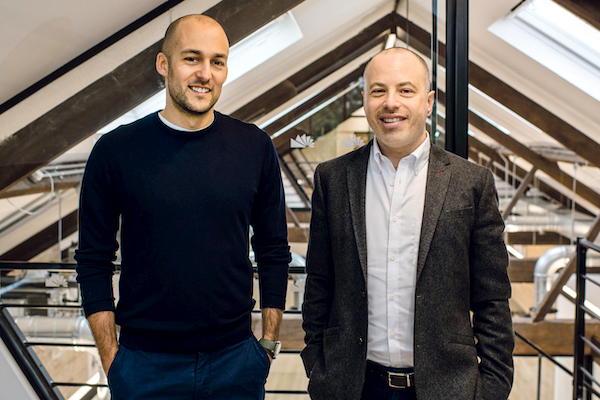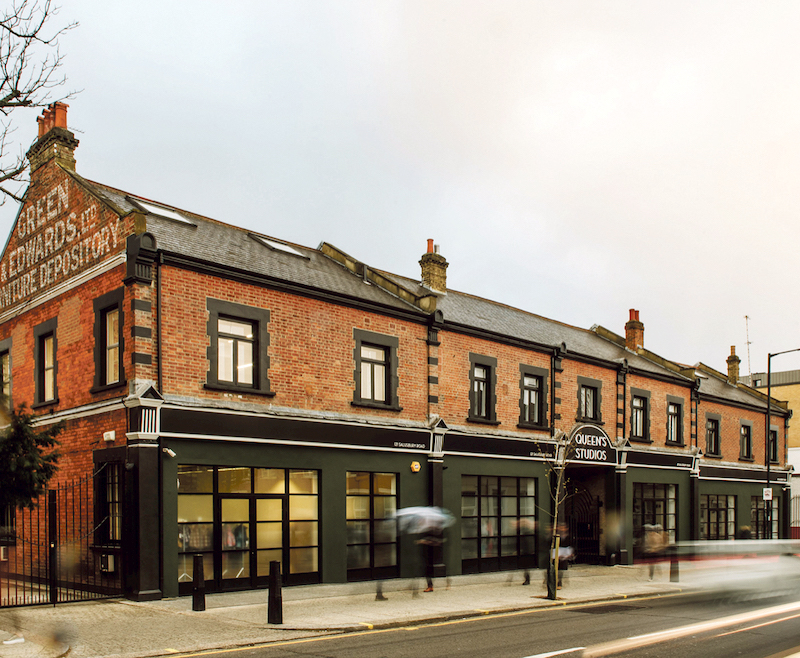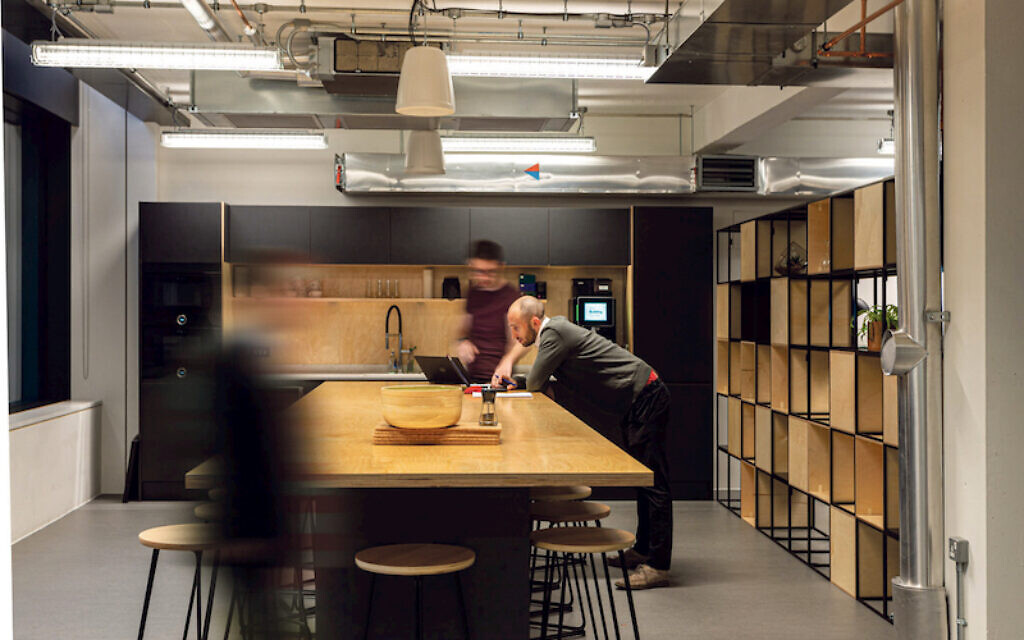‘The office is definitely not dead – it’s just changing’
The co-founder of flexible workspace provider Spacemade tells Candice Krieger why success will come to those landlords and operaotors who provide space on demand
Many workplaces across the UK remain near empty and dozens of the UK’s largest firms admit they have no plans for their employees to return to the office as the government advises the nation to work from home. But property entrepreneur Jonny Rosenblatt maintains: “The office is definitely not dead, it’s just changing.”
Rosenblatt is the co-founder of Spacemade, a flexible workspace provider.
Spacemade works alongside building owners to help them deliver a flexible workspace product.
Get The Jewish News Daily Edition by email and never miss our top stories Free Sign Up
It sits as an extension to a landlords’ team and delivers the entire suite of services to them: branding, marketing, sales, tech, finance and operates the space on their behalf.
Rosenblatt believes there is still a “massive demand” for flexible office space and says the shift going forward will be seismic.
“We saw our best week of sales in the week following Boris’ WFH [work from home] announcement” he says.
“People may not be going to their corporate HQs for a little while, but the expectation on them from their firms is to deliver. For many, the idea of working from home for another six months is soul-destroying, so they are seeing a need to find somewhere flexible, ideally local and with Covid safety measures in place.”
Rosenblatt predicts that a majority of companies will integrate some element of flexible office space into their company’s office strategy over the next three months. Many already are.
“The companies we speak to are very much engaged with this. Many are downsizing their HQ but expanding the availability of spaces available to their employees through flexible workspace providers,” he explains. “Larger corporate occupiers appear to be taking a more cautious approach to wider workplace strategy and buying a bit more time, but what is clear is that changes to workspace strategy is a conversation going on in every company right now.”
While flexible working and flexible office space is not a new phenomenon, the pandemic has accelerated the trend in an unprecedented way. A survey carried out last month by Spacemade found that nearly half of people surveyed would want to spend at least some time in a local office. The most popular option was doing two to three days a week from a local workspace and a similar amount from a central HQ, with only
15 percent wishing to work remotely full-time.
Rosenblatt, 36, and his co-founder Dan Silverman, 37, said that at the start of the year they expected a rise in the ‘work near home’ model to come through over the next five years, but it’s happened in a few months.

In fact, this shift towards such a ‘hub and spoke model’ – where rather than operate from a single larger office in the city, a business allows employees to work from either their city hub or a dedicated ‘spoke’ location, including more regional workspaces – is already taking place and likely to be a key product of the pandemic.
Founded last year, Spacemade has 100,000 sq ft of flexible office space under operation in London, Leeds and Bristol. Rosenblatt previously founded the Headspace Group, a portfolio of flexible shared office space, which he sold in 2017.
He then teamed up with Silverman, a former investment director at Blue Coast Capital and BNP Paribas Real Estate, who had been advising on commercial real estate investments.

“We saw this trend where landlords were increasingly looking to deliver their own flexible offering to tenants, but didn’t necessarily have the capabilities to do so. They were struggling to compete with operators and being pushed out the market.”
He acknowledges the pandemic has turned real estate on its head. “The value of covenant strength, lease length, valuation methods, location, FR&I [Full Repairing and Insuring] leases are all under scrutiny. Success will not come to those simply willing back the good old days.
“Our early wins as a business have been small but impactful because we’ve listened to our customers who tell us they want flexibility above all else. They want to use space on demand. Landlords and operators who can support this will be the big winners.”
But surely the government’s ‘work from home’ message hasn’t helped the office market? “Not for central London in the short term,” he admits. “Momentum had been building and companies had started reverting to office usage at a much more substantial rate. What’s clear though is that building owners have to think about how best to deliver their space to maximise revenue and make it attractive for occupiers to want to use them. The office needs to be a destination more than ever.”
Design will be key. “People’s priorities are changing – they want nice office spaces. Workers need a reason to go back to the office, having got used to working from the comfort of their home. Traditionally, the spaces close to home have always been pretty below par but the office needs to be worth coming to.”
Rosenblatt maintains, however, that there is still very much a need for a central HQ. “The ideal mix going forward is going to be three day/two day split; probably two days in a Central HQ where people get together for focused collaborative work, versus a couple of days of focused work closer to home. Everyone wins because employees get the benefit of a better work-life balance and don’t have the painful commute everyday, and companies can also have a bit more flexibility with the huge overhead of their real-estate portfolio.
“The mix of remote working and being in a HQ is going to be different for every organisation, but getting the right balance and providing the right solutions will be critical to every company’s success.”

Thank you for helping to make Jewish News the leading source of news and opinion for the UK Jewish community. Today we're asking for your invaluable help to continue putting our community first in everything we do.
For as little as £5 a month you can help sustain the vital work we do in celebrating and standing up for Jewish life in Britain.
Jewish News holds our community together and keeps us connected. Like a synagogue, it’s where people turn to feel part of something bigger. It also proudly shows the rest of Britain the vibrancy and rich culture of modern Jewish life.
You can make a quick and easy one-off or monthly contribution of £5, £10, £20 or any other sum you’re comfortable with.
100% of your donation will help us continue celebrating our community, in all its dynamic diversity...
Engaging
Being a community platform means so much more than producing a newspaper and website. One of our proudest roles is media partnering with our invaluable charities to amplify the outstanding work they do to help us all.
Celebrating
There’s no shortage of oys in the world but Jewish News takes every opportunity to celebrate the joys too, through projects like Night of Heroes, 40 Under 40 and other compelling countdowns that make the community kvell with pride.
Pioneering
In the first collaboration between media outlets from different faiths, Jewish News worked with British Muslim TV and Church Times to produce a list of young activists leading the way on interfaith understanding.
Campaigning
Royal Mail issued a stamp honouring Holocaust hero Sir Nicholas Winton after a Jewish News campaign attracted more than 100,000 backers. Jewish Newsalso produces special editions of the paper highlighting pressing issues including mental health and Holocaust remembrance.
Easy access
In an age when news is readily accessible, Jewish News provides high-quality content free online and offline, removing any financial barriers to connecting people.
Voice of our community to wider society
The Jewish News team regularly appears on TV, radio and on the pages of the national press to comment on stories about the Jewish community. Easy access to the paper on the streets of London also means Jewish News provides an invaluable window into the community for the country at large.
We hope you agree all this is worth preserving.
-
By Laurent Vaughan - Senior Associate (Bishop & Sewell Solicitors)
-
By Laurent Vaughan - Senior Associate (Bishop & Sewell Solicitors)
-
By Laurent Vaughan - Senior Associate (Bishop & Sewell Solicitors)
-
By Laurent Vaughan - Senior Associate (Bishop & Sewell Solicitors)






















